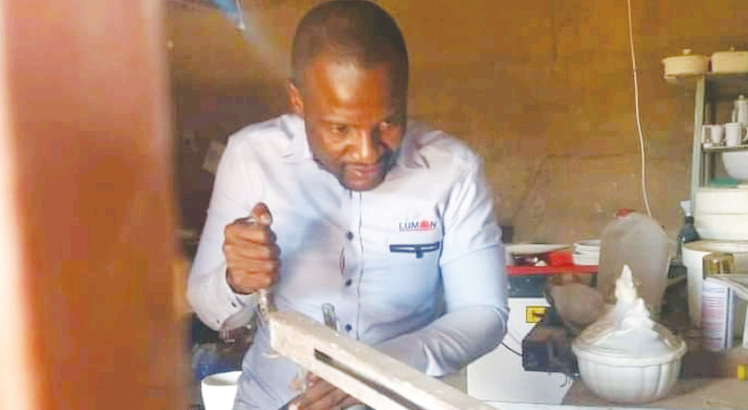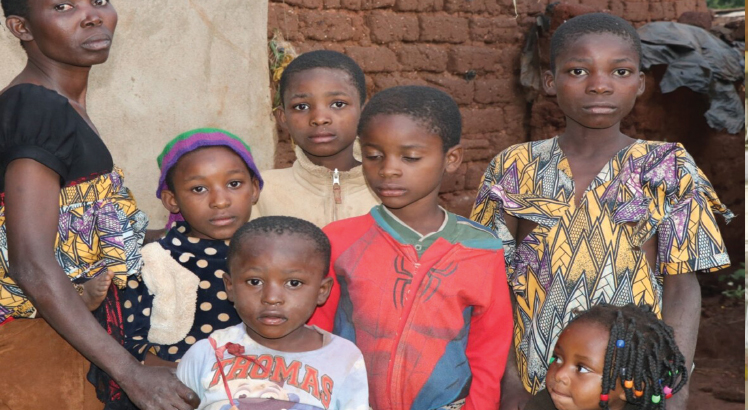While teams from West, North and South of the continent competed for this year’s Africa Cup of Nations (Afcon) title, one region was noticeably absent: East Africa.
This is not the first time that countries from East Africa have not made their mark on the biggest football stages.
Since the tournament began, no country in the East African Community (comprising Kenya, Uganda, Tanzania, Burundi, Rwanda, and South Sudan) has taken home the trophy.
The Flames celebrate booting out Uganda from the 2021 Afcon qualifiers
Even qualifying has been a challenge. Uganda, Kenya, and Tanzania have only made it to Afcon’s main draw a handful of time, most recently in 2019, but are yet to go deep in the tournament. The majority of countries in the region are yet to make it to the World Cup.
This is somewhat of a surprise considering East Africa boasts world-class athletes who dominate long-distance running. The sporting potential extends to cycling, rugby, and boxing. But while football remains the most popular sport, the region’s footballing prowess lags behind the rest of the continent.
In comparison, countries in west and north Africa have dominated the African football scene.
Cameroon, Senegal, and Ghana are Africa’s only ever World Cup quarter-finalists. Currently, Africa has seven teams in the top 50 of the Fifa world ranking for men’s football and they are all from the north and west of the continent.
“It is true that the region is far behind the rest of Africa,” Mark Namanya, a sports commentator based in Uganda, told Quartz. “There are several factors that cause this: mismanagement by governing bodies, poor structures, and there is little global exposure for east African players.”
Over the past couple of years, East Africa’s football associations have faced several blows.
In November 2021, the president of Football Kenya Federation (FKF) Nick Mwendwa was arrested for embezzlement. This was the latest in a string of scandals which have discouraged sponsorship for the country’s national team, embroiling them in further financial woes.
Across the border, the Tanzania Football Federation (TFF) has continually faced allegations of corruption. In 2019, the former TFF president, Jamal Malinzi, was sanctioned by FIFA for the misappropriation of funds.
While in Uganda, the football association has been faced with player strikes over pay disputes. Rwanda’s league has similarly been hit with corruption claims.
“There have been various episodes of bad management,” says Namanya. “These challenges are there for the other regions too. But because West Africa has a foundation for being a hotbed for talent they don’t suffer the kinds of hits that Kenya or Uganda face.”
Poor management has meant less investment and resources available for the associations to be able to grow the sport. Local and regional leagues lack the competitiveness of their African counterparts.
With the region’s governing bodies struggling to put in place the right structures to nurture young talent, East Africa has also had little success in exporting its players to the top European leagues.
“If East Africa had a standout player competing at a global level—like Mo Salah—it could really accelerate things. You can’t be what you can’t see,” said Gabriel Ajala, Founder of Africa Sports Unified.
“Such players can be used to inspire the next generation to become footballers and get into positions of leadership to help play that out.”
With a bigger reputation for talent, Ajala says that European teams prefer to look to West Africa to scout for players, while East Africa goes overlooked. Just a handful of footballers from the region, like Mbwana Samatta and Victor Wanyama, have made it to such leagues.
“If you look at the squads of Ivory Coast, Nigeria, and Mali, several of their players have experience of playing in the biggest leagues in the world,” said Namanya. “This makes their national teams more formidable.”
But even when talent is identified, getting East African players to compete abroad, such as the English Premier League has its own obstacles.
Work permits for the UK remain difficult, with all of the East African teams falling below the work permit threshold of a top 50 FIFA ranking. As such, few foreign agents and scouts are located there.
But recent developments in East African football show promise. The region is seeing a rise in the number of academies and partnerships which aim to nurture young talent.—Africa Quart
The post East africa’s Afcon struggles appeared first on The Nation Online.
 Moni Malawi
Moni Malawi 

